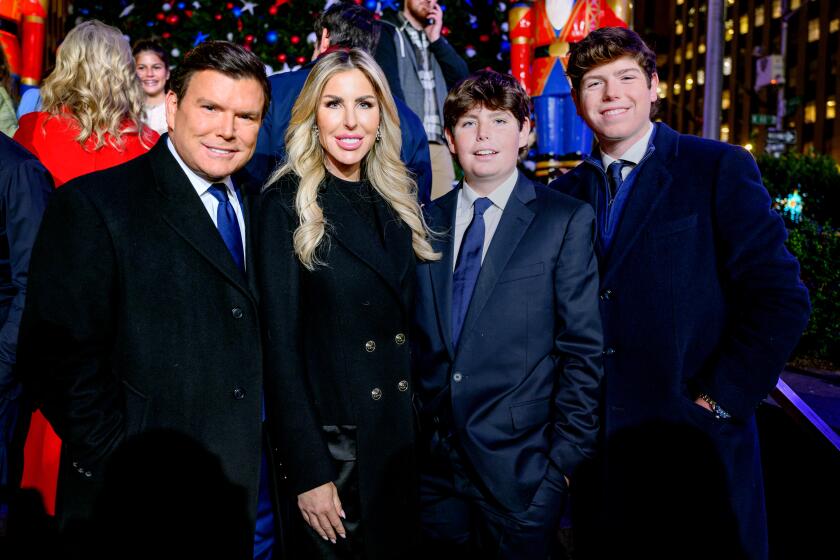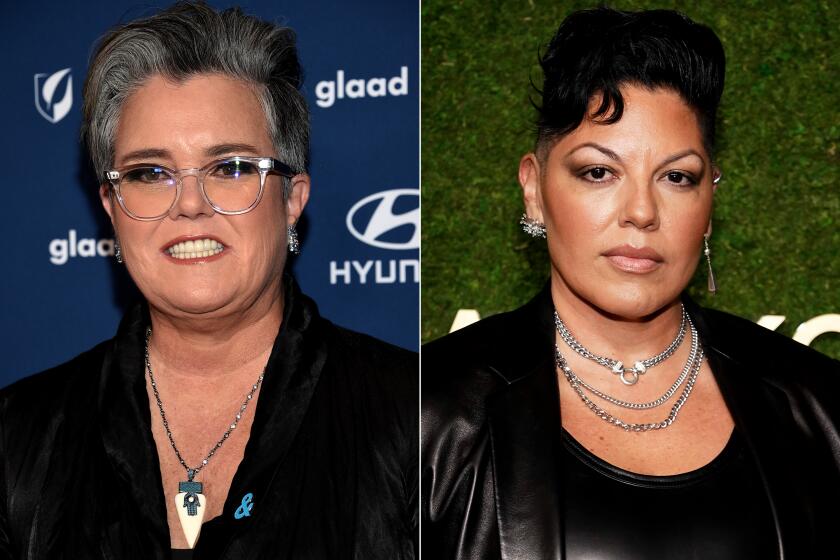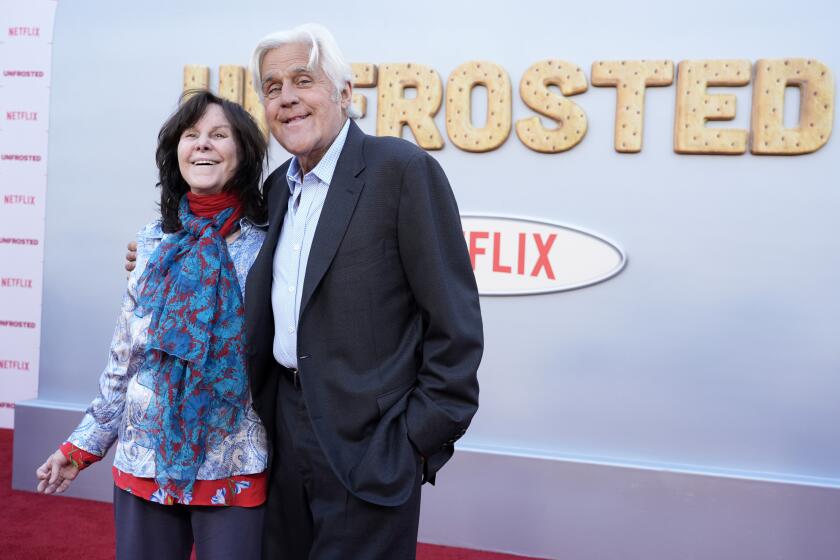TV Comedian George Gobel Dies at 71
George Gobel, the sad-eyed comic with the flat-top haircut whose battles with his television wife, “Spooky Old Alice,” added a dimension to domestic warfare in the 1950s, died Sunday.
Sam Honigberg, his friend and publicist for nearly 40 years, said Gobel had had a series of strokes, which left him unable to walk, and had undergone femoral bypass surgery nearly a month ago to see if his mobility could be helped.
“He may have had another stroke” and died at Encino Hospital, Honigberg said.
The Emmy Award-winning comedian was 71.
Gobel carried several sobriquets throughout his lengthy career, which began when he was 11 and singing as “Little George Gobel” on radio’s “The National Barn Dance.”
He next became “Lonesome George,” singer of sad cowboy ballads in which he would pick at his guitar while pining for lost loves, or evenings on the prairie.
On television, 20-plus years later, Gobel enriched the language with such phrases as “Well, I’ll be a dirty bird” and “You can’t hardly get them no more.”
His underplayed, deadpan humor stood in contrast to the other TV comics of the day--such frenetic entertainers as Milton Berle and Red Skelton.
But his flair as a short (5 feet 5) teller of tall tales, kept him at, or near, the top of the ratings throughout the 1954-to-1960 run of “The George Gobel Show.”
The NBC show, which won him an Emmy in 1955, started with an opening monologue, a sketch or song by a guest star, and then the inevitable aggravation he suffered at the hands of his wife, Alice, portrayed first by Jeff Donnell and then Phillis Avery.
Had CBS’ “Gunsmoke” not been his opposition, the comedy-variety series might have lasted even longer.
The dry wit and keen sense of timing that was George Leslie Gobel was born in Chicago to a grocer father and a mother who taught piano.
Gobel’s interest in entertainment began as a child when he would imitate his father’s customers. He learned to play guitar in grammar school and sang in a church choir. The choir appeared on a Chicago radio station and young George’s solo produced an invitation to the Barn Dance program, one of the few shows in radio’s history that charged admission to its studio audience.
There he was heard along with the Hoosier Hot Shots, Pat Buttram, Uncle Ezra, Lulubelle and Scotty and other stars of the very early country and Western program, which first aired in 1933.
At 15, he also was Jimmy, the admiring kid who held the hero’s horse on radio’s “The Tom Mix Show.”
Gobel had taught himself to fly and in 1943 enlisted in the Army Air Corps. Although he wanted to be a fighter pilot, he was assigned as a B-26 pilot instructor in Frederic, Okla.
As Gobel recalled: “You might laugh at that, but we must have done a good job down there because not one enemy plane got past Tulsa.”
After his discharge he refined the jokes and monologues he had used to entertain his fellow fliers and broke into Chicago nightclubs.
CBS learned of him and used him as a regular guest on Garry Moore’s TV shows in 1952. He also appeared on the “Colgate Comedy Hour,” “The Spike Jones Show” and “Who Said That?”
After seeing Gobel at a Los Angeles club, NBC producer Joe Bigelow told his network that Gobel had “a nightclub routine that could go on television intact. . . .”
“The George Gobel Show” went on the air on Oct. 2, 1954, and became “the hit of the season,” said TV Guide.
Producer David O. Selznick chose him as the only live comic for TV’s two-hour salute to Thomas A. Edison on the 75th anniversary of the inventor’s invention of the incandescent lamp. Gobel’s remark from that late 1954 special--”If it weren’t for electricity we’d all be watching television by candlelight”--remains one of the classic one-liners of American comedy.
Gobel also appeared on Broadway. In 1961 he was featured in a musical adaptation of George Abbott’s “Three Men on a Horse,” retitled “Let It Ride.”
He also toured in “The Odd Couple” and “The Last of the Red Hot Lovers.”
His films included “The Birds and the Bees” and “I Married a Woman.” He also did many voice-overs for TV commercials and was a regular on the syndicated “Hollywood Squares” game show.
There was a real Alice throughout Gobel’s life--his high school sweetheart Alice Humecki, whom he married in 1942. They had two daughters and a son and three grandchildren.
Gobel played golf regularly, telling The Times in 1975 “I never enjoyed a damn minute of it,” while kidding himself that he played behind so many trees he was considered the Joyce Kilmer of the sport. Kilmer was a poet know chiefly for “Trees.”
Gobel once summed up his self-deprecating approach when he asked Johnny Carson during one of many guest appearances on “The Tonight Show,” “Did you ever feel as if the whole world was a tuxedo, and you were a pair of brown shoes?”
Or, as he said in his peculiarly laconic manner when the first of the Gobel programs went on national TV: “This show might just keep you from getting sullen.”
In lieu of flowers the family is asking that contributions be made to the Motion Picture and Television Fund in Woodland Hills. Funeral services were scheduled for 10 a.m. Thursday at St. Cyril’s of Jerusalem Church in Encino.
The complete guide to home viewing
Get Screen Gab for everything about the TV shows and streaming movies everyone’s talking about.
You may occasionally receive promotional content from the Los Angeles Times.



